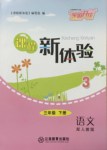题目内容
完形填空
In the old days, in London, the smog
(烟雾)was very thick. Car and bus drivers __1__ to drive very slowly because they could __2__ see the road clearly in front of them even during the daytime. People did not like going out in the smog __3__. If they had to go out, they wore smogmasks(防雾面具)over their faces.In December 1952, a very thick __4__ cloud came down over London. It was the __5__ smog Londoners had ever seen. __6__ of it was bad factory smoke. Nearly fifty people died in road accidents. But many more people became unhealthy. The smog was very __7__ for old people and children. One man said,
“The streets were almost __8__ because people stayed at home as much as possible. The air was very thick, and you could almost cut it with a knife.”After three weeks, the smog began to __9__, But in the following weeks and months over 4 000 people died as a result of the __10__.
|
(1) A .hurried |
B .stayed |
C .had |
|
(2) A .already |
B .easily |
C .not |
|
(3) A .days |
B .weather |
C .morning |
|
(4) A .dark |
B .white |
C .light |
|
(5) A .furthest |
B .hottest |
C .worst |
|
(6) A .Much |
B .Many |
C .Few |
|
(7) A .quiet |
B .dangerous |
C .favourite |
|
(8) A .busy |
B .empty |
C .enjoyable |
|
(9) A .arrive |
B .shine |
C .disappear |
|
(10) A .fog |
B .rain |
C .factory |

 芝麻开花课程新体验系列答案
芝麻开花课程新体验系列答案完形填空
Emily
and Peter have lived next door to each other as long as they can remember. When
they were ___(1)___ children, they ___(2)___ play together. They were good
friends, though they sometimes fought over toys. ___(3)___ they grew older, they
seldom(很少) played with each other. Emily preferred to be with girls and
Peter preferred to play with boys. When they were about fifteen years old, they
almost stopped ___(4)___ to each other, not because they disagreed with each
other, ___(5)___ because they belonged to different groups. Emily began to study
French and also enjoyed watching football games. Peter was only interested in
sports.
___(6)___
was football that brought Emily and Peter back together. One day, after Peter
went home, he looked into the window of Emily’s living room and saw ___(7)___
she was watching a football game on TV. He walked up and knocked at the door.
Emily was ___(8)___ to see him, but asked him to come in and they watched the
___(9)___ of the game together. They are good friends again. They ___(10)___
have different ideas about things
sometimes, but they agree with each other that football is the world’s best
game.
(1)
[ ]
|
A.a
little |
B.little |
|
C.a
few |
D.few |
(2)
[ ]
|
A.often |
B.used
to |
|
C.were used to |
D.themselves |
(3)
[ ]
|
A.When |
B.While |
|
C.So |
D.Because |
(4)
[ ]
|
A.speak |
B.spoke |
|
C.to speak |
D.speaking |
(5) [ ]
|
A.and |
B.but |
|
C.that |
D.so |
(6) [ ]
|
A.It |
B.This |
|
C.That |
D.What |
(7)
[ ]
|
A.what |
B. |
|
C.why |
D.if |
(8)
[ ]
|
A.surprise |
B.surprising |
|
C.surprised |
D.a surprise |
(9)
[ ]
|
A.other |
B.next |
|
C.later |
D.rest |
(10)
[ ]
|
A.yet |
B.also |
|
C.still |
D.too |
完形填空
Jane is 1 English schoolgirl. She is thirteen. She lives 2 London (伦敦). She 3 at the No.1 Middle School. Jane gets 4 at half 5 five every day. She6 Russian and English in the morning. She 7 breakfast(早餐)at half past six. After that, she goes to school 8 her friends.They have four 9 in the morning 10 three in the afternoon. In the evening, she does 11 homework at school. She often 12 TV 13 Saturday evening. Jane likes 14 She draws 15 than her brother. She likes reading story-books, 16. Now she 17 an English story-book in 18 room.
(1) A. a |
B. an |
C. the |
D. one |
[ ] |
(2) A. in |
B.on |
C. at |
D. with |
[ ] |
(3) A. study |
B. studys |
C. studies |
D. studying |
[ ] |
(4) A. on |
B. in |
C. down |
D. up |
[ ] |
(5) A. at |
B. past |
C. from |
D.about |
[ ] |
(6) A. reads |
B. does |
C. writes |
D. listens |
[ ] |
(7) A. have |
B. has |
C. makes |
D. begins |
[ ] |
(8) A. for |
B. to |
C. on |
D. with |
[ ] |
(9) A. class |
B. classeses |
C. classes |
D. clases |
[ ] |
(10)A. or |
B. but |
C. than |
D. and |
[ ] |
(11)A . his |
B. her |
C. one's |
D. she's |
[ ] |
(12)watches |
B. sees |
C. looks |
D. looks at |
[ ] |
(13)A. in |
B. at |
C. on |
D. for |
[ ] |
(14)A. draw |
B. to drawing |
C. draws |
D. drawing |
[ ] |
(15)A. good |
B. well |
C. better |
D. best |
[ ] |
(16)A. too |
B. also |
C. then |
D. right |
[ ] |
(17)A. read |
B. reading |
C. is reading |
D.reads |
[ ] |
(18)A. his |
B. her |
C. hers |
D. its |
[ ] |